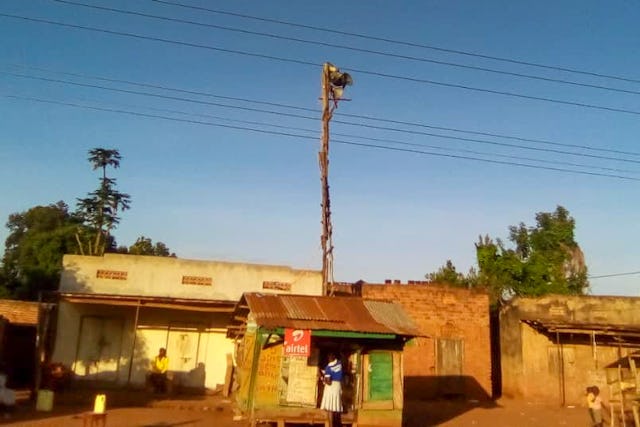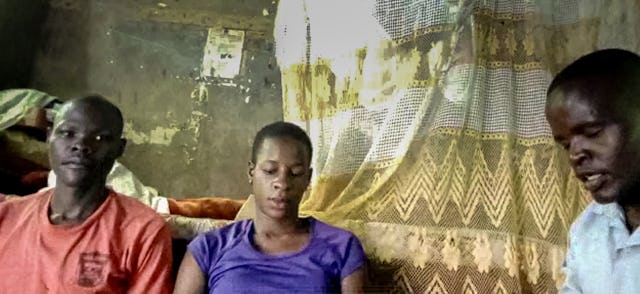Radio broadcasts in Uganda comfort and inspire amidst crisis
KIYUNGA, Uganda — With new public health directives prohibiting gatherings, the Baha’is in this rural area have taken to radio to bring hope and joy to their neighbors, encouraging prayer within each home. These daily broadcasts are prompting a conversation across households on the importance of prayer as a source of strength during these exceptionally difficult times.
When the president of Uganda issued guidelines to prevent the spread of the coronavirus disease (COVID-19), he called for places of worship to close for several weeks. At the same time, he encouraged the people of the country, whatever their religion, to continue to pray within their homes.
Through decades-long efforts aimed at social progress, Ugandan Baha’is have seen how communities with strong bonds of friendship and a devotional character can demonstrate great perseverance in times of crises.
“We started to explore ways we could inspire our fellow citizens, our brothers and sisters in the country, given the sense of hopelessness and sadness that was beginning to affect many people,” says Drake Nangoli, a member of the Ugandan Baha’i community. “Since our interpersonal interactions were now limited, we looked at using local radio stations and other broadcast services.”
In Kiyunga, for example, local authorities have made the village’s mass-communication device available for the Baha’is to offer a 90-minute evening program. This device is a centrally-located loudspeaker which, during the quiet evening hours, can be heard clearly throughout several neighboring villages.
The local Baha’is are presenting a program that includes readings of prayers, sacred writings, and exploration of issues of common concern. Listeners are encouraged to draw on prayer as a source of daily spiritual sustenance and as a means to reflect on how each person can alleviate suffering in society.
A young Baha’i, Gerald Mukungu, says, “What can the youth do to reinforce this conversation started by the broadcast? I’ve seen the usefulness of having this conversation and will try to take it further within my family, and with my friends.”
The local leadership has been supportive of this effort and is encouraging villagers to listen, participate in the discussions, and pray in their homes. “We are happy to work with the Baha’is to assist people to understand the importance of relying on prayer in this trying moment,” says Anthony Musamali, the interim Council Chairman in Kiyunga. “If this is reinforced, it can elevate the character of the inhabitants and inspire noble acts among them.”
One local leader says, “I was touched by the message, and now I wonder how this conversation can continue even beyond this period. We need to make the conversation continuous such that the devotions continue to occur.”
Inspired by this effort, other communities in Uganda have started similar broadcasts on local radio stations and mass-communication devices.

